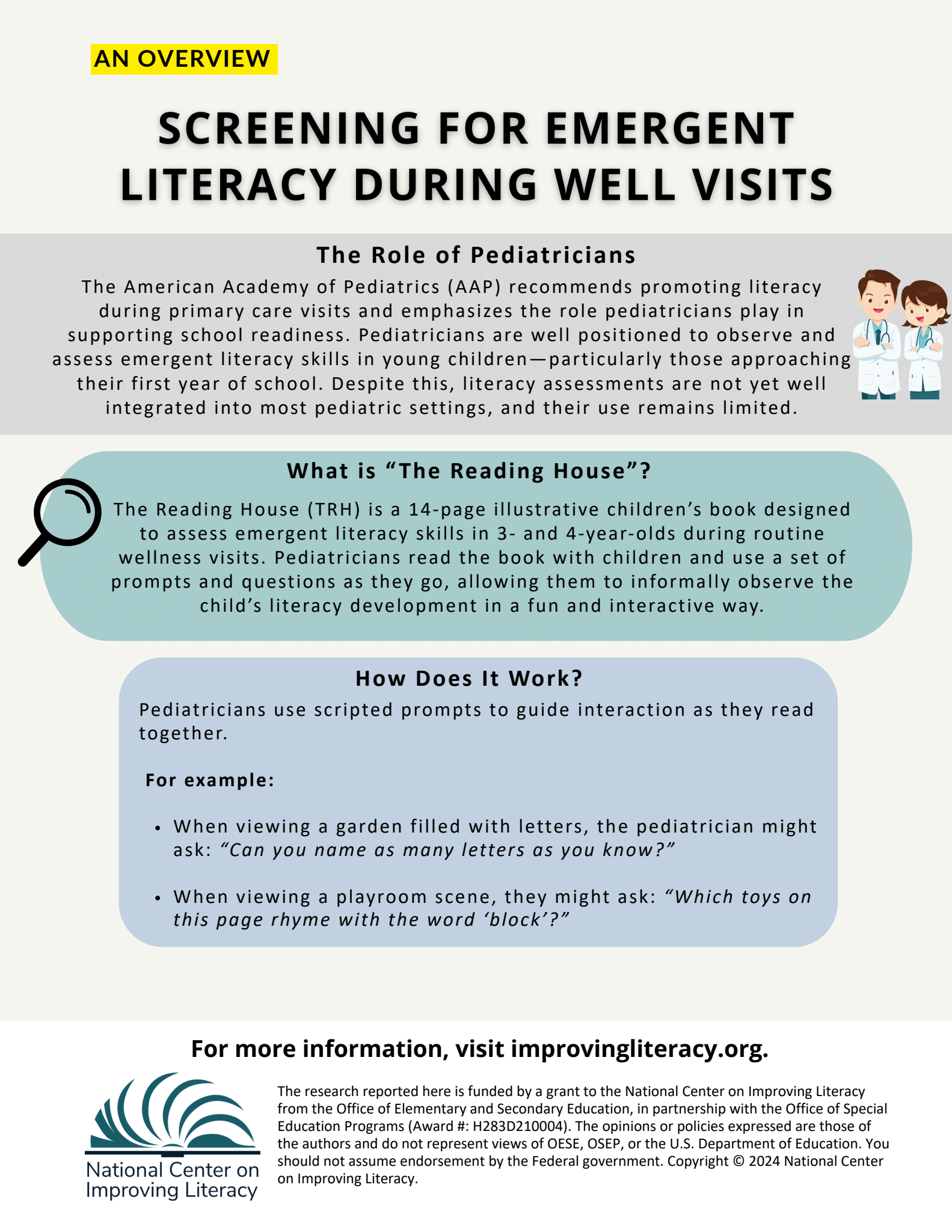1. Why is it important to promote literacy in pediatric care?
The American Academy of Pediatrics (AAP) recommends incorporating literacy promotion into primary care. Pediatricians have regular contact with young children and families and can play a key role in school readiness by observing and supporting early literacy development.
2. What is The Reading House and how does it support screening?
The Reading House (TRH), developed by Hutton et al. (2019), is a children’s book designed to assess emergent literacy skills in 3- and 4-year-olds during pediatric well visits. Pediatricians read the book with children and use a scripted set of prompts and questions as they move through the story together.
3. What kinds of literacy skills does The Reading House assess?
TRH focuses on early reading-related behaviors, such as:
-
Letter knowledge: Looking at a garden image with letters of the alphabet: “Name as many letters as you know.”
-
Rhyming and sound awareness: Looking at a playroom image with toys: “Which objects rhyme with the toys the child is playing with?”
These kinds of tasks offer insight into children’s phonological awareness and print knowledge.
4. What is the potential of TRH for identifying children at risk?
The Reading House shows promise as a screening tool for use in pediatric settings—especially for children not enrolled in preschool. By identifying risk early and supporting families, tools like TRH may help reduce disparities in school readiness.
As development continues, TRH and similar tools may also help identify children at risk for future reading difficulties, including dyslexia. However, more research and implementation work is needed to support widespread use.





